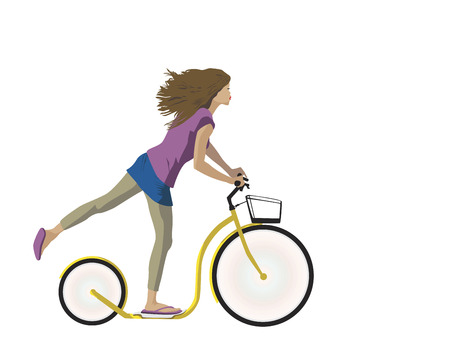Cholesterol is only one of several factors that affect the risk of heart disease. Others include high blood pressure, smoking, lack of exercise, family history, poor diet, and being overweight or obese. One study estimated that 80 percent of heart disease could be prevented by changes in three lifestyle factors- diet, exercise and smoking. And yet the medical establishment remains focused on cholesterol levels and taking statins.
When I was in medical school, a total cholesterol below 240 mg/dL was considered acceptable, but over the years that was lowered to 220 and then to 200 by various advisory groups. In 2004, new guidelines that made LDL cholesterol the primary factor in deciding to prescribe statins were so stringent that millions more Americans were prescribed these drugs. Subsequently, it was reported that all but one of the nine members of the panel that wrote the guidelines had received funding from statin manufacturers.
A consortium of heart organizations came out with yet a new set of guidelines in 2013, based on your risk of heart attack in the next ten years, determined by an online calculator. You should take a statin, they advised, if your risk is 7.5 percent or more. Using the results of the online calculator, upwards of 70 million Americans, including almost everyone over age sixty-five, should be taking these drugs. Fortunately, a recently revised calculator (https://sanjaybasu.shinyapps.io/ascvd/) dials back the number of people advised to take statins.
Missing from these advisories is any consideration of the dangers of taking statins:
-One in five patients taking statins have side effects, with muscle pain being the most common.
-The FDA has issued safety announcements cautioning statin users about memory problems, diabetes, and liver function.
-Acute memory loss is four times more common in statin users in the first days of treatment.
-People taking statins have nearly a 50 percent higher risk of developing type 2 diabetes.
-Other side effects include cataracts, liver and kidney damage, fatigue, and mood disorders.
If you have had a previous heart attack or stroke and/or if you have a 20 percent risk of having one in the next ten years using the new calculator, you should consider taking a statin if you are not able to reduce your ten-year risk using lifestyle methods alone. In people with familial hypercholesterolemia, a genetic defect causing high levels of LDL cholesterol, statins are usually recommended. These people can also lower their risk of heart disease, as well as the dosage of statins needed, by diet, exercise, and smoking cessation.
While it is easier to take a pill, most of us could take a thirty-minute walk three times a week, up our intake of fruits and vegetables to five servings daily, and cut down on highly refined carbohydrates. Losing weight and stopping smoking are more difficult but can be done with proper motivation. Given the choice, what would you do? Change your lifestyle or take a pill? As the evidence of serious side effects from statins continues to grow—diabetes, cataracts, muscle damage, even dementia—the risk benefit equation tilts dramatically toward not taking them at all.



